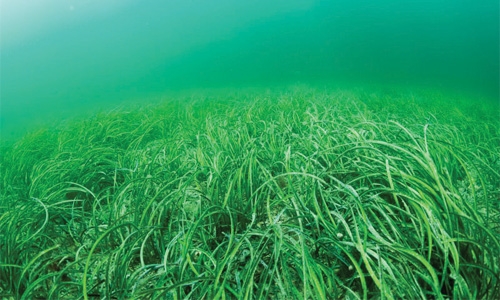Firm to study seagrass restoration
Manama : International engineering consulting firm ByrneLooby has been commissioned to undertake a pilot study which could lead to the restoration of seagrass in certain areas of Bahrain’s marine environment.
The study done by the ByrneLooby office in Bahrain is to relocate seagrass in order to enhance existing habitats with the overall aim of increasing marine life within an area of reclamation. If successful, the project could be the start of much larger scaled operations providing many developers across the Kingdom of Bahrain with a tangible option for environmental compensatory measures. While the replantation of seagrass has been attempted elsewhere in the Middle East, it is understood to be a first in Bahrain.
The pilot study was carried out by the ByrneLooby environment team in March 2016 after they were commissioned by Diyar Al Muharraq, a leading developer committed to preserving the coastal environmental heritage of Bahrain, to explore habitat enhancement options within the development as part of their overall social and environmental responsibilities.
“If the study proves successful, it would provide other developers in Bahrain with a good opportunity to relocate seagrass habitats that occur in areas where future reclamation is planned,” explains Lauren van der Merwe, Principal Environmental Specialist with ByrneLooby.
“Our Client, Diyar Al Muharraq has developed a large scale reclamation in North West Bahrain and are interested in looking at ways to give back to the environment. We are therefore exploring a number of options but considered developing the option of seagrass translocation because large areas of the reclamation were constructed on seagrass habitats”, Van der Merwe said.
ByrneLooby collected approximately 40m2 of dense seagrass from a ‘donor site’ and transported it to three areas within the Diyar Al Muharraq development.
The seagrass was then planted in areas exhibiting similar features.The translocation has been undertaken on a small scale in order to test the viability of the project in Bahrain. ByrneLooby will be monitoring the growth progress over the coming months in order to assess the success of the project for future environmental compensation opportunities and to find the best locations for long-term transplanting programmes.
Related Posts

